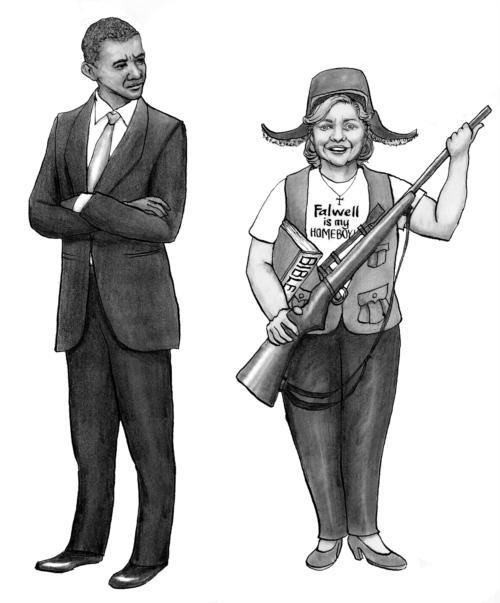
News
Summers Will Not Finish Semester of Teaching as Harvard Investigates Epstein Ties

News
Harvard College Students Report Favoring Divestment from Israel in HUA Survey

News
‘He Should Resign’: Harvard Undergrads Take Hard Line Against Summers Over Epstein Scandal

News
Harvard To Launch New Investigation Into Epstein’s Ties to Summers, Other University Affiliates

News
Harvard Students To Vote on Divestment From Israel in Inaugural HUA Election Survey
The Bitter End
Hillary Clinton’s response to Barack Obama’s comments on rural America is deplorable

Few social blocs in America have been all at once so mythologized and so misunderstood as rural voters. Nor have many been so cynically manipulated into voting against their own interests. The last 30 years of American politics have witnessed an extraordinarily duplicitous—and, unfortunately, extraordinarily successful—program by conservative politicians and commentators to annex small-town America by shamelessly pandering to ugly stereotypes that paint rural voters as religiously minded, gun toting, nativists. Now that tradition can count amongst its ranks another prominent practitioner in the form of Hillary Clinton, who, in the face of increasingly onerous roadblocks in her path to the nomination, has elected to employ the tired old cultural bludgeons which have long misrepresented rural voters as something that they themselves rarely recognize.
In the past week, the Clinton campaign has seized on Barack Obama’s suggestion that rural voters “cling” to religious fundamentalism and anti-statism because they have seen no real governmental redress for their economic woes, turning it into a blanket charge of elitism against Obama. Copping her lines almost directly from 30 years of Republican smear literature, Clinton assessed Obama’s rhetoric as out-of-touch with supposedly authentic heartland values. Her surrogates quickly jumped into line to help paint Obama in the political poison-cloud of liberal snobbery.
These tactics of Clinton’s are not the tactics of well-intentioned democratic politics. They are the tactics of a campaign in the paroxysms of electoral death. And, as a consequence, the tenor of American political discourse ratchets one notch lower. It is unfortunate that any candidate who strays even the slightest bit from the accepted narrative of cultural pandering is immediately branded a cultural elitist. It is even more so that such a branding is coming from someone who’s supposed to be on the same side.
What’s particularly tragic about this situation is that this myth of the “heartland” ethic is by and large a phantasm constructed by conservative elites in order to frighten liberals away from drifting towards populism. In reality, rural America has been the site of some of the nation’s most radical political movements. Eugene Debs, the prominent socialist of the turn of the century, was a proud resident of Terre Haute, Ind. Lyndon Johnson, the architect of the century’s most far-reaching liberal programs, was born a poor Texan. Rural Americans, just like their urban counterparts, are a complex group, full of competing opinions on politics, culture, and religion, yet we continue to treat them as one-dimensional pawns in the bloody arena of political point-scoring.
An issue such as gun control reveals the sorry state of political self-censorship which these assumptions have drawn us into. The fact that the Democratic Party cannot even have an open discussion on the Second Amendment out of fear that they will be crippled by a cultural bludgeon is indicative of the extent to which we have all collectively bought into this cultural trap. Certainly many rural Americans have a wide variety of reasons for opposing gun restrictions. But to claim that there exists a single “rural America” that universally rejects such proposals and considers suggestions to the contrary as a cultural affront is not only wildly incorrect, it’s insulting.
No doubt Obama’s comments could have been more tactfully delivered. But so could almost any political statement, and the fact that the Clinton campaign has so brutally wielded his words against him is an unfortunate commentary both on the state of her own campaign and of the American political landscape in general.
Want to keep up with breaking news? Subscribe to our email newsletter.
